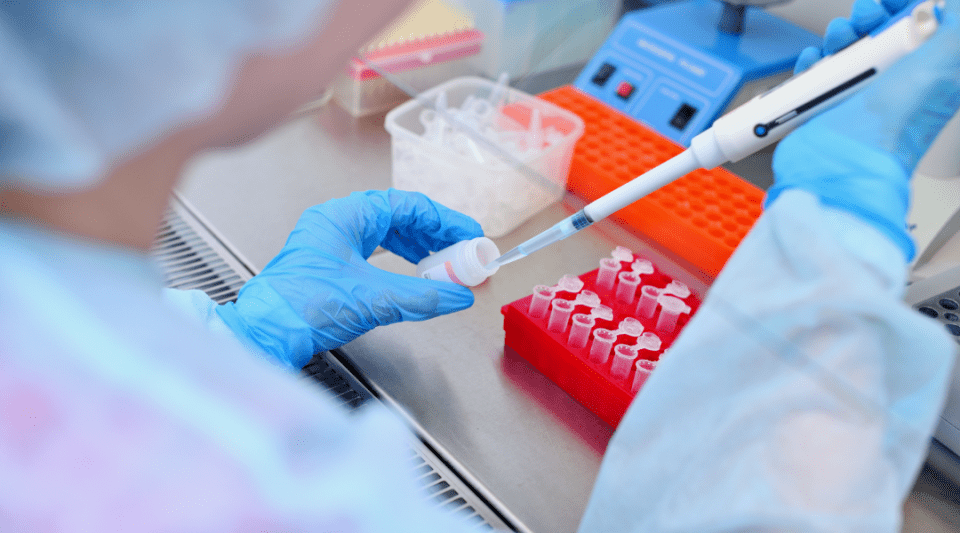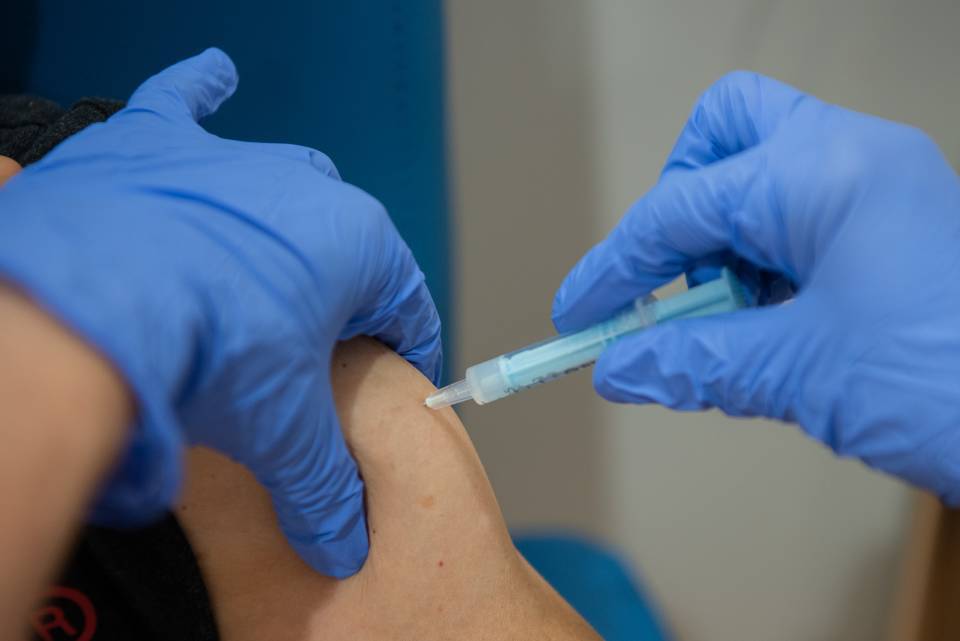13 February 2024
Frequently Asked Questions about VIH
What is wrong with me?
AIDS, or Acquired Immunodeficiency Syndrome, is the final stage of HIV infection when the body’s defences have fallen below a certain safety level (a CD4 count of less than 200 cells/mm3 of plasma) and are no longer capable of protecting it from infections and tumours. This situation is reached after 7 – 10 years of acute infection or primoinfection, if the HIV infection is left untreated.
When HIV enters the human organism it always triggers an immune response to produce antibodies designed to neutralise the infection. However, these antibodies are not fully neutralising and so they are unable to eliminate the HIV virus. When these antibodies are detected in a person’s blood serum it means they HIV actively, or seropositive.
Viral load is the amount of virus, quantified by the number of HIV-RNA copies per millilitre of plasma. Viral load tells us about the level of viral replication activity. It is also used as a prognostic indicator and to monitor the effectiveness of antiretroviral therapy. Current techniques for measuring viral load are very sensitive and have a detection limit of 20 copies/mL. When the treatment is effective, the virus multiplies at a rate below this level (residual viral replication) and analytical techniques are unable to detect it. In such cases it is said that the viral load is “undetectable” (this does not mean the virus is absent from the body). Viral load is related to the CD4 count.
HIV is transmitted exclusively by three routes: from mother to child, via direct blood contact or through sexual intercourse. The most effective method of preventing mother-to-child transmission is treating the mother during pregnancy. Routine screening for HIV in blood banks has eliminated the transmission of the virus by this medium. Methadone programs and the individual use of syringes have dramatically reduced the transmission of HIV between drug users. The use of condoms reduces sexual transmission. An undetectable viral load, principally due to antiretroviral therapy, significantly decreases the chances of transmitting the virus.
The routes of transmission are those presented above. Daily activities and cohabiting with your family do not carry the risk of transmitting the virus.
How will I be treated?
The sooner that a person knows has HIV, the sooner he or she can benefit from medical treatment and therefore improve your quality of life, while adopting measures to avoid reinfection and transmitting the virus to others.
Anybody that has been exposed to the virus could be infected. Anyone that finds themselves in the following situations are advised to take the test:
People who have had sexual intercourse with penetration or oral sex, or contact with semen and vaginal secretions without a condom, with one or several partners and it is unknown whether they are infected or not.
People who consume injectable drugs and have shared material.
Pregnant women or those who wish to have a child.
People who have had sexually transmitted infections.
Stable couples who want to stop using condoms and do not have any other sexual partners.
As soon as you suspect you are infected, although you have to wait for three months after the possible moment of infection until the test result is 100% reliable. It could be positive much earlier if you have been infected.
When antibodies are detected in a person’s body it means that HIV is present, and can therefore transmit the virus to other people. A positive result does not mean that you have AIDS or that it will necessarily develop as long as the infection is detected in time and you receive the correct treatment.
A positive result does imply the need to look after yourself and could produce emotional changes. For this reason, it is essential that you visit the doctor, obtain information and receive the necessary care. It can prove very helpful to get in contact with other people affected by the condition.
To improve the health of a person living with HIV, simple guidelines should be followed: have safe sex to avoid transmission and reinfection; do not share needles or personal hygiene items; and consult a gynaecologist if you want to have a child.
A negative result within three months of suspected infection (and with no other risk exposure during this period) confirms that the person does not have HIV.
Will I get better?
Recommendations generally indicate that treatment should be initiated in all cases and as soon as possible. Patients could be advised to start treatment at any moment during the disease, as long as they are prepared to follow it correctly and for the rest of their life.
The toxicity profile of HIV drugs has improved substantially. Nowadays they are well-tolerated and lipodystrophy no longer tends to be a problem for patients starting the treatment. The availability of several different drugs belonging to the same class means therapeutic changes can be made in cases of intolerance and treatments can be adapted to the needs of each individual.
The healthcare team will take a blood sample to measure the amount of HIV in your body (viral load) and the health of your immune system (CD4 cell count). Your doctor will also ask you to undergo some tests to detect other diseases, such as tuberculosis and certain sexually transmitted infections. Your doctor may also recommend that you get some vaccinations.
Treatment prevents the virus from reproducing within your body and deteriorating your immune system. In the majority of cases, recommendations are to start treatment before the CD4 cell count (the cells which attack the virus) falls below 500 cells/mm3.
It is very important that you take your medication as prescribed by your doctor. This means taking the correct doses every day at the correct time and taking into account any diet restrictions.
Treatment consists of a combination of 2 or 3 different medications. Your doctor will prepare a treatment schedule that best adapts to your individual needs.
It helps to measure the viral load in your blood 4 weeks after starting HIV treatment to confirm that it is working and that you are taking it correctly. After this, the viral load test will be performed every 3 to 6 months. If the viral load is undetectable and your CD4 cell count remains high (or is increasing), then it means that the virus is being controlled at the expected levels and the treatment is working.
The most frequent adverse effects tend to be headaches, dizziness, gastrointestinal discomfort, sleep disorders, etc. The majority are mild and occur at the beginning of treatment. If a secondary effect is severe and/or long-lasting, then you must report it to your doctor. Routine analyses also detect the mid and long-term development of secondary effects.
Living with HIV
So long as the patient takes it correctly, antiretroviral therapy is very effective; it manages to reduce viral replication and this strengthens the immune system. The life expectancy of poeple living with HIV (when treated correctly with highly active antiretroviral therapy and when their viral loads are maintained undetectable) is similar to, or only slightly less than, people without HIV and they are expected to have a good quality of life.
Anybody who treats or cures open wounds should always wear gloves, regardless of whether or not they know that the wounded person has HIV. You should always wash your hands with soap and water or with an alcohol-based solution before putting on and after removing the gloves. Gloves should always be worn whenever handling blood, bodily fluids, secretions, mucous membranes, broken skin or potentially contaminated objects.
All patients have the right to receive information about their treatment process and their state of health. Furthermore, the law gives patients the right to access their medical history upon request.
All patients have the right to receive information about choosing a doctor and hospital facility, and consequently they can change their doctor and/or healthcare centre if they consider it necessary.
The data about each patient are confidential and must be protected by the hospital facility to prevent anybody from accessing them without prior legal authorisation.
The doctor must ensure that the patient has been informed about all the tests which they will undergo and that the patient gives their consent before realising any diagnostic or therapeutic procedures.
Participating in a clinical trial is voluntary and therefore nobody can force you to do it. The decision to participate must include written consent from the patient who must have been previously informed about the trial.
You can present a complaint to the patient services department at your hospital, complain to the patient ombudsman in your autonomous community or take legal action. No patient should ever be discriminated against because of their ethnic origin, gender, sexual orientation, disability or any other personal or social circumstance.
Substantiated information by:



Published: 20 February 2018
Updated: 5 December 2022
Subscribe
Receive the latest updates related to this content.
Thank you for subscribing!
If this is the first time you subscribe you will receive a confirmation email, check your inbox


